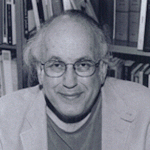When the corpse revived at the funeral,
The outraged mourners killed it; and the soul
Of the revenant passed into the body
Of the poet because it had more to say.
He sat down at the piano no one could play
Called Messiah, or The Regulator of the world,
Which had stood for fifty years, to my knowledge,
Beneath a painting of a red-haired woman
In a loose gown with one bared breast, and played
A posthumous work of the composer S——
About the impotence of god (I believe)
Who has no power not to create everything.
It was the Autumn of the year and wet,
When the music started. The musician was
Skillful but the Messiah was out of tune
And bent the time and the tone. For a long hour
The poet played The Regulator of the World
As the spirit prompted, and entered upon
The pathways of His power—while the mourners
Stood with slow blood on their hands
Astonished by the weird processional
And the undertaker figured his bill.
—We have in mind an unplayed instrument
Which stands apart in a memorial air
Where the room darkens toward its inmost wall
And a lady hangs in her autumnal hair
At evening of the November rains; and winds
Sublime out of the North, and North by West,
Are sowing from the death-sack of the seed
The burden of her cloudy hip. Behold,
I send the demon I know to relieve your need,
An imperfect player at the perfect instrument
Who takes in hand The Regulator of the World
To keep the splendor from destroying us.
Lady! The last virtuoso of the composer S——
Darkens your parlor with the music of the Law.
When I was green and blossomed in the Spring
I was mute wood. Now I am dead I sing.




















Comment form: